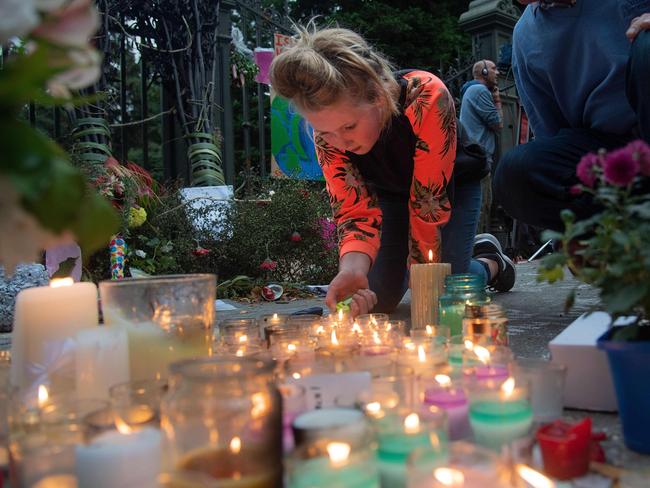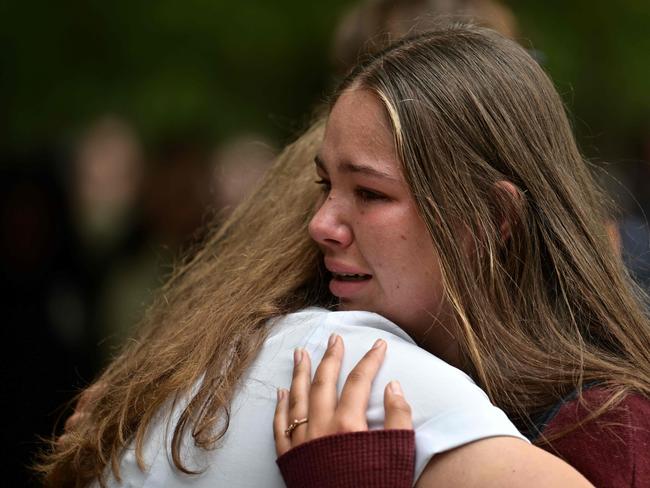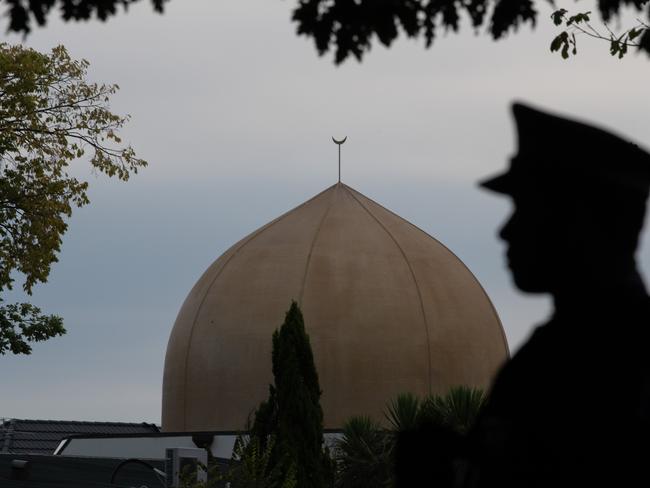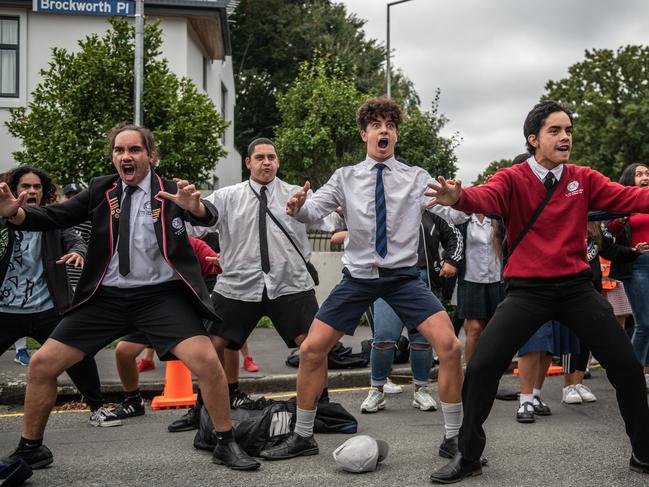How to talk to your kids about the Christchurch terror attack
Parents are being urged not to shy away from talking to their children about the Christchurch terrorist attack. Here’s why it’s important and the best approach to take.
Crime in Focus
Don't miss out on the headlines from Crime in Focus. Followed categories will be added to My News.
Parents are being urged not to shy away from talking to their children about the New Zealand terrorist attack.
It comes as Lifeline says there was a 12 per cent spike on the weekend in calls which they attribute to Friday’s attack on two mosques in Christchurch in which 50 worshippers were gunned down.
Rachel Bowes, the executive director of Crisis Support Operations at Lifeline, says that it is increasingly important for parents to have conversations with their children about events like the mosque shootings, especially in light of the way news is spread via social media.
Distraught NZ kids heal with hugs and haka
Why survivor forgives gunman who killed wife
More clues emerge from Australian gunman’s life

“I think increasingly parents have to be prepared to have these conversations with their kids. It is important not to hide away from that or pretend it hasn’t happened. We know that children take things they see and hear and quickly worry about it,” Ms Bowes says.
“They magnify it, these fears become very real, that it could happen where they live. It is important to ask children if they have heard anything or seen anything about what happened, are they scared, what are they worried about and talk it through with them,” she says.
“I would definitely say, encourage children to talk about it, to draw pictures about it … I think we definitely should not shy away from talking about these things with children.”

Ms Bowes says one strategy, in explaining to children what has happened, is to look for and amplify the people who are doing good work and helping and those who are showing kindness and compassion.
Ms Bowes said that Lifeline recorded a significant increase in calls throughout the weekend in the wake of the attack.
“We have definitely seen a significant spike over the weekend. People are getting really scared, they want an opportunity to talk about it, they doin’t understand why they feel so upset and anxious about something that is so far away.”
Dr Rob Gordon, a clinical psychologist and consultant to the Victorian Government and Red Cross for Disaster Recovery, says that young children will personalise what has happened and make it about their own immediate environment, without understanding that overseas is far away.

Dr Gordon says in explaining incidents like the mosque shootings to young children it is important to put it into perspective by telling them that yes, there are bad people in the world who would harm others but there are not many of them. But it is also important not to create a false illusion that there is no badness in the world.
He said that teenagers will have more questions, such as why this happened and it important to explain to them in the terms that it is a simplistic solution to a complex problem, that is somebody who is unhappy, isolated and displaying anger.
“What will help (children) deal with it is to talk about what they have seen, put it into context,” Dr Gordon says.

Dr Gordon worked as a consultant to Victoria’s recovery plan in the wake of the Port Arthur massacre and the Queen Street shootings in Melbourne in 1987 in which nine people were killed. He has spent more than 30 years working with people affected by emergencies and disaster.
Dr Kimberley O’Brien, an Educational and Developmental Psychologist at The Quirky Kid Clinic in Sydney, says that young children are much more susceptible to trauma when it is in visual form and that if they had seen the disturbing vision, streamed live by Brenton Tarrant, as he carried out his terrorist shooting spree, it would take them a long time to recover.
Dr O’Brien said that children who had seen vision of the rampage would become hyper-vigilant, want everybody to be close to home, to be held and reassured. Some children who were toilet-trained could regress and go back to bed wetting.
“It is a huge step backwards in terms of independence. It is a long pathway to recovery, it could take six to 12 months to get them back to where they were,” said Dr O’Brien.
Lifeline can be contacted on 1300 1114 or people can go online in the evenings to chat to a counsellor.
The Quirky Kid is at childpsychologist.com.au
Originally published as How to talk to your kids about the Christchurch terror attack


